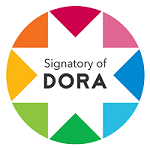Avoidance and restriction of food intake disorder {ARFID) associated with obsessive symptoms in a child with autism spectrum disorder on the subject of a clinical case
DOI:
https://doi.org/10.33734/diagnostico.v60i3.304Keywords:
Autism Spectrum Disorder (ASD), Avoidance and Restriction of Food Intake Disorder (ARFID), Obsessive Compulsive Disorder (OCD)Abstract
The case of an 11 years old who is admitted to the pediatric emergency room due to severe dehydration, abdominal pain, vomiting, weight loss, obsessive ideas related to food intake due to fear of vomiting, obsessive concern in relation to food is presented. consumption of some foods rich in carbohydrates for fear of digestive disconfort, denies fear of gaining weight. During hospitalization for severe protein-calorie malnutrition, other non-psychiatric causes are ruled out and the psychiatric evaluation of the child and adolescent obtains characteristic data of autism spectrum disorder and clinical avoidance and restriction of food intake disorder that presented it a lot Previous time, symptoms that went unnoticed despite the decrease in body weight, presenting symptoms of obsessive compulsive disorder (OCD) with a predominance of obsessive thoughts, which aggravated the previous diagnosis. Therefore, pharmacotherapy and individual and family psychotherapy is started, obtaining positive results in the patient. Due to the high prevalence of comorbidities of autism spectrum disorder, such as the case that we present with OCD and TERIA, its identification and pharmacological and psychotherapeutic treatment are important for a better prognosis.
Downloads
Metrics
References
American Psychiatric Association-APA. Manual diagnóstico y estadístico de los trastornos mentales DSM-5 (5a. ed. --.?). Madrid: Editorial Médica Panamericana. 2014.
Suspes Cruz Y, Orejarena Serrano S. Trastorno de evitación y restricción de la ingestión de alimentos en Pediatría: un diagnóstico novedoso para una entidad frecuente en la práctica clínica. Pediatría integral 2020;2004(4):234.e1-234.e7
De Toro V, Aedo K, Urrejola P. Trastorno de Evitación y Restricción de la Ingesta de Alimentos (ARFID): Lo que el pediatra debe saber. Andes pediátrica.2021;92(2):298-307. https://dx.doi.org/10.32641/ andespediatr.v92i2.2794
Plataforma digital única del Estado Peruano. 81% de personas tratadas por autismo en Perú son varones [Internet]. Lima; 2019 [citado el 1 de abril de 2019]. Disponible en: https://www.gob.pe/ institucion/minsa/noticias/27103-el-81-de-personas-tratadas-por- autismo-en-peru-son-varones
Sadock BJ, M.D., Alcott Sadock V, M.D., Ruiz P, M.D. Sinopsis de Psiquiatría Ciencias del comportamiento/Psiquiatría Clínica. China: Wolters Kluwer. 2015.
Griffiths, DL, Farrell LJ, Waters AM, White SW. ASD Traits Among Youth with Obsessive-Compulsive Disorder. Child psychiatry and human development.2017;48(6):911-921. https://doi.org/10.10 07/s10578-017-0714-3
Tang B, Piazza CC, Dolezal D, Stein MT. Severe feeding disorder and malnutrition in 2 children with autism. Journal of developmental and behavioral pediatrics : JDBP.2011;32(3):264-267. https://doi.org/ 10.1097/DBP.0b013e3182138668
Martin AF, Jassi A, Cullen AE, Broadbent M, Downs J, Krebs G. Co-occurring obsessive-compulsive disorder and autism spectrum disorder in young people: prevalence, clinical characteristics and outcomes. European child & adolescent psychiatry.2020; 29(11):1603-1611. https://doi.org/10.1007/s00787-020-01478-8
Flygare O, Andersson E, Ringberg H, Hellstadius AC, Edbacken J, Enander, J, Dahl M, Aspvall K, Windh I, Russell A, Mataix- Cols, D, Rück C. Adapted cognitive behavior therapy for obsessive- compulsive disorder with co-occurring autism spectrum disorder: A clinical effectiveness study. Autism: the international journal of research and practice.2020;24(1):190-199. https://doi.org/ 10.1177/1362361319856974
Norris ML, Spettigue WJ, Katzman DK. Update on eating disorders: current perspectives on avoidant/restrictive food intake disorder in children and youth. Neuropsychiatric disease and treatment.2016;12: 213-218. https://doi.org/10.2147/NDT.S82538
Tsang KK, Hayes LC, Bujoreanu S, Samsel CB, Ibeziako PI.
Estudio de caracterización de pacientes que acudieron a un hospital pediátrico de cuidados agudos identificados con trastorno por evitación/restricción de la ingesta de alimentos. Pediatría hospitalaria. 2020;10 (7):600-607. DOI: 10.1542 / hpeds.2020-0010.
Crowley JG, Peterson KM, Fisher WW, Piazza CC. Treating food selectivity as resistance to change in children with autism spectrum disorder. Journal of applied behavior análisis.2020;53(4):2002-2023. https://doi.org/10.1002/jaba.711
Yanagimoto Y, Ishizaki Y, Kaneko K. Iron deficiency anemia, stunted growth, and developmental delay due to avoidant/restrictive food intake disorder by restricted eating in autism spectrum disorder. BioPsychoSocial medicine.2020; 14:8. https://doi.org/10.11 86/s13030-020-00182-y
Sharp WG, Berry RC, Burrell L., Scahill L, McElhanon BO. Scurvy as a Sequela of Avoidant-Restrictive Food Intake Disorder in Autism: A Systematic Review. Journal of developmental and behavioral pediatrics : JDBP. 2020;41(5):397-405. https://doi.org/ 10.1097/DBP.0000000000000782
Bedford SA, Hunsche MC, Kerns CM. Co-occurrence, Assessment and Treatment of Obsessive Compulsive Disorder in Children and Adults With Autism Spectrum Disorder. Current psychiatry reports.2020;22(10): 53. https://doi.org/10.1007/s11920-020-01176- x
Pazuniak M, Pekrul SR. Obsessive-Compulsive Disorder in Autism Spectrum Disorder Across the Lifespan. Child and adolescent psychiatric clinics of North America 2020;29(2):419-432. https://doi.org/10.1016/j.chc.2019.12.003
Ortiz AE, Espelt C, Rosa M, Puig O, Lázaro L, Calvo R. Identificando compulsiones en niños y adolescentes con trastorno del espectro autista. Revista de Psiquiatría Infanto Juvenil. 2019;26(4): 24-40. DOI: 10.31766/revpsij.v36n4a4
Soutullo. Guía Esencial de Psicofarmacología del Niño y del Adolescente. Madrid: Editorial Médica Panamericana. 2016;16:221- 231.
Iniesta-Sepúlveda M. Nadeau JM, Ramos A, Kay B, Riemann BC, Storch EA. An Initial Case Series of Intensive Cognitive-Behavioral Therapy for Obsessive-Compulsive Disorder in Adolescents with Autism Spectrum Disorder. Child psychiatry and human development. 2018;49(1):9-19. https://doi.org/10.1107/s105 78-017- 0724-1
Hu T, Dong Y, He C, Zhao M, He Q. The Gut Microbiota and Oxidative Stress in Autism Spectrum Disorders (ASD). Oxidative medicine and cellular longevity.2020; 8396708. https://doi.org/ 10.11 55/2020/8396708



























